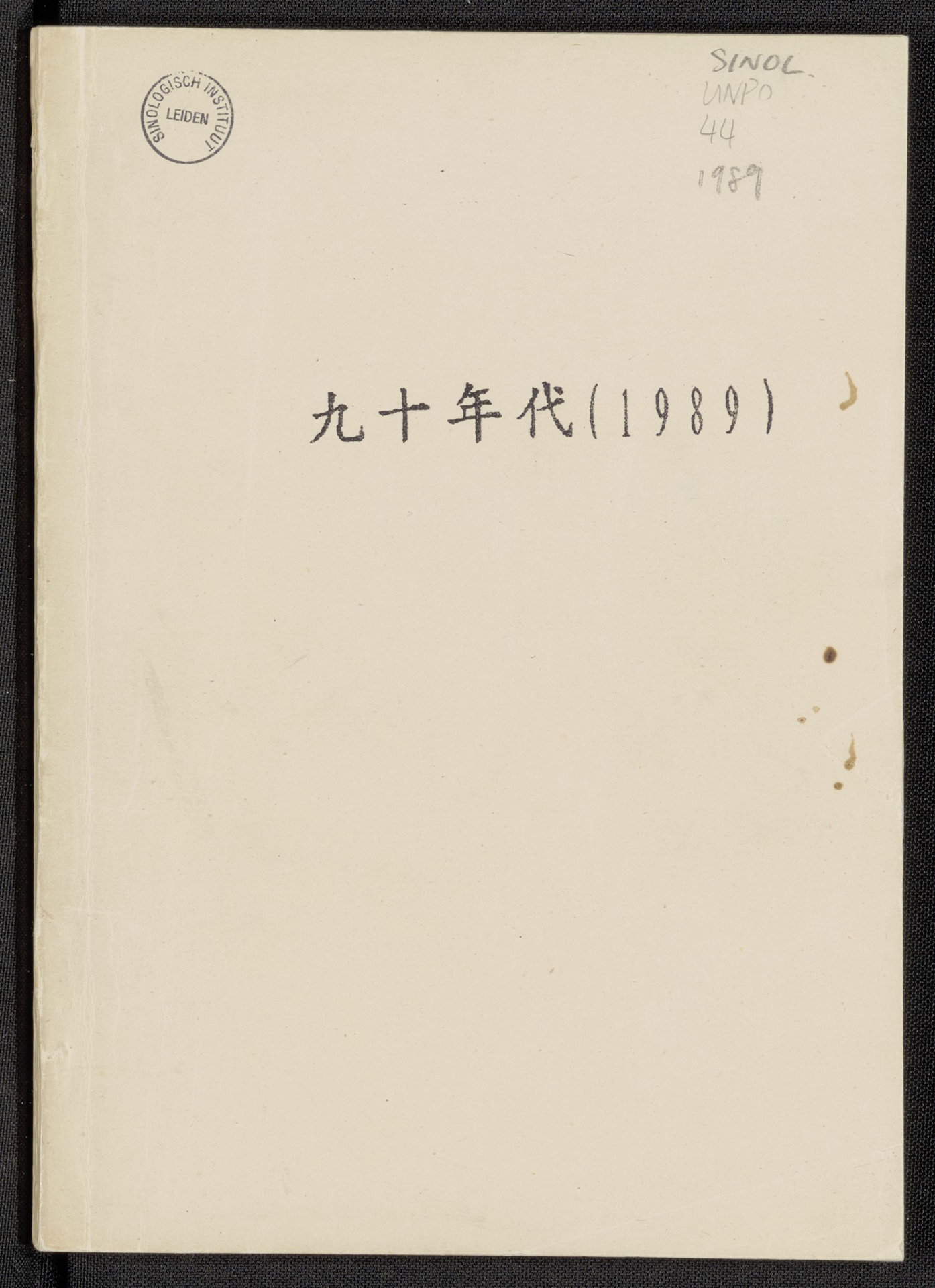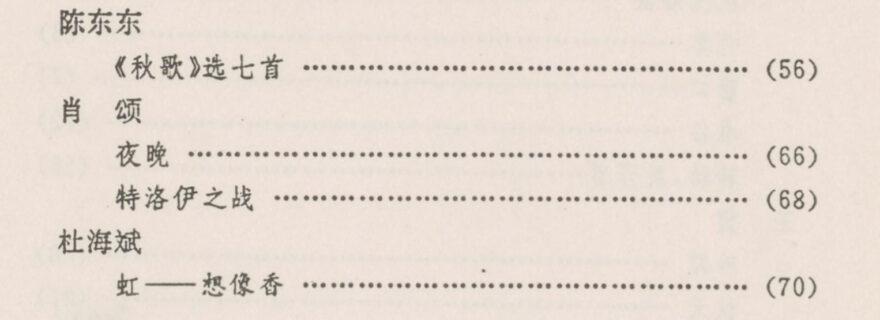"The Nineties": Ready, set… GO into the new era!
Zhou Zan 周瓒, a leading Chinese poet, translator, playwright, critic and scholar, was able to read "The Nineties" for the first time in the Leiden University Digital Collections. This is just one journal from approximately 100.000 pages of unofficial Chinese poetry freely accessible online.
Prior to a race, athletes typically line up in the same ready position and wait for the starter to yell, “Ready, set, go!” or fire the starting gun into the air with a “bang.” At that moment, everyone sprints off as fast as they can. Of course, in their eagerness to take the lead, some may risk a false start, launching themselves just before the starter's command or the gunshot.
The way I see it, The Nineties, an unofficial poetry magazine in mainland China, is very much like one of these runners. The Nineties was founded in 1989, or more precisely, in December 1989, a pinch-point moment, like the tense moments just before a race, and it was ready to rush into the 1990s ahead of everyone else.


The question is: who was The Nineties competing with?
The answer might be that it was racing against Time. In literary history, there is an overarching concept known as the "Zeitgeist," which has given rise to a kind of literary superstition: by grasping the Zeitgeist, a poet can become the spokesperson for an era. Moreover, this carries a transcendence that allows the poet to become an unmatched historical presence.
The founders of The Nineties were aware of a rupture (they felt the 1980s had come to an end, socio-politically and culturally), and at the same time they were writers who straddled this rupture, emerging collectively as a new generation of poets on the literary scene. This means that the “rupture in time” needed to be bridged by the knowledge of their bodies Of course, they were still young, and their writing prospects were full of possibilities. Although they were unable to predict what their future poetry would look like, at least they were able to voice their common aspirations as a group, to raise a voice that resonated with a specific time: the nineties.
The Nineties, which set out to be an annual journal, ceased publication after a total of four issues in the years 1989–1992. It was only then that critics and poets began to jointly construct what we now know as the “Poetry of the Nineties” -- in which authors who had published in The Nineties played a prominent role. “Poetry of the Nineties” became a specific designation, with discernible Zeitgeist aspirations. Today, when we review the seamless connection from The Nineties to “Poetry of the Nineties”, we cannot help but feel that the conception and publication of this unofficial journal in 1989 was like a rushed attempt to register a "Nineties" trademark.
I discovered The Nineties in the Special Collections of Leiden University Libraries, which boasts the most comprehensive and academically valuable, freely accessible print and digital collections of unofficial poetry journals from mainland China since the 1970s. Even someone like me, who is a writer and researcher in the field of Chinese poetry, will first encounter many of these journals in the Leiden library. Ready, set… GO!
______________
About the author:
Zhou Zan 周瓒 (also known as Zhou Yaqin) is a leading Chinese poet, translator, playwright, critic and scholar. Zhou is also the editor of Wings, an unofficial Chinese Poetry Journals dedicated to women's poetry.
Discover the Leiden Digital Collection of Unofficial Chinese poetry.
Go to Digital Collections.
On 22 November, Leiden University Libraries celebrates the Chinese DYI Poetry tradition and the entry of the final batch of digitised poetry journals into Digital Collections with a Symposium:
From Underground to Overground, from Print to Digital: A Symposium on Unofficial Poetry from China
Register now to attend or to receive a link to the live stream.

